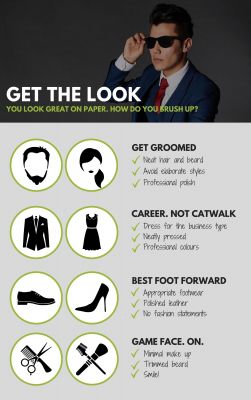Interviews Uncovered
We've all been there. Pacing the floor, rehearsing that finely tuned pitch in our heads, mentally reeling off all the elements we plan to cram into our thirty minutes of fame. Though as soon as we take the stage in front of a prospective employer, suddenly our brains decide to go into shutdown. They're annoying like that.
The job interview isn't an interrogation. It's an opportunity for you to find out more about the company you've chosen to work with, and to demonstrate just how well you match up to job.
Making time for a little advanced planning not only arms you with a little extra ammo in the presence of brain fog, it also just might give you the edge over those that rocked up with more of a wing-it approach.
Know The Job Like You Own It
Walk into your interview with a full understanding of the brand, and the role, as if you work there already.
- Find out as much about the company and the day-to-day role as you can.
- Comb through the job description and be confident that you understand every aspect of the role.
- Do a little digging online and brush up on the background of the company, their achievements, awards and what others say about working there.
- Find out their mission statement and core values. You can use these to demonstrate how well you'll fit in.
- Discover their plans for the future.
... if the role was already yours, you'd be able to answer these questions on the spot. Tool yourself up and use what you know to demonstrate your commitment to the brand.
Me, Myself & I
How well do you really know yourself? Whilst an armoury of knowledge on the business and their brand is impressive, don't forget the interview is about you.
On the spot questioning is tough enough, so make sure that memory bank of yours has firmly logged your main career achievements, your strengths, weaknesses (yes, we all have them), and your own ambitions for the future.
The old shoe shuffle, chin rub and rendition of 'uhmms' not only looks unprepared, it also shows you don't really know yourself.
- Strengths
- Achievements
- Awards
- Challenges you've overcome
- Examples of taking initiative
Interview Insight
Do some digging and find out what the plan of action is.
- Who is going to be conducting the interview? Is it a panel interview or a one on one meeting with your potential direct line manager?
- Will there be a test? Find out before the interview and work on a similar kind of test for practice.
- Are there any time constraints on the meeting? If so, rehearse beforehand to ensure you have time to cover everything you'd like to.
- What will you need to bring with you? (CV, references, certificates, testimonials or examples of your work).
- Will you be presenting? What would they like to see?
- Will you need any specialist arrangements? Enquire about building access or a communicator in plenty of time to ensure your needs are met.

All The Questions
So, you know you'll be asked questions right? Just checking, as many candidates don't plan for questioning, leading to an awkward fumbling search for answers on the spot.
There are hundreds of questions you might be asked, based on criteria, competency or your personality. Don't go gung-ho thinking up responses to every question possible. But have a catalogue of great responses that could fit a variety of questions.
We've put together some of the Best Interview Questions. When you register with The People Pod, ask us for a copy or find out more here.
The interview usually ends with the opportunity to ask any questions yourself. Make sure you have something. Having nothing to say comes across as uninterested.
Make a list of 10 intelligent business related questions prior to the day, you will find over half of these will be covered during the interview leaving you with 4 or 5 to ask at the end. This shows you have really prepared for the interview and will help you make a commercial decision before you join the company.
Map It Out
Being late gives a potential employer a terrible impression. Even worse, it can affect the quality of your interview - hot and flustered isn't a good look.
- Ensure your People Pod consultant has mailed you the full address details of the venue and telephone number.
- Carry out a dummy run before the day of interview at a similar time of day so that you can gain a true understanding of the time it's going to take.
- Find out where you can park or flag a taxi.
- If you need any special arrangements, again check that the transportation that you have chosen will allow for this.
- Fill up your tank the day before.
- Programme your sat nav and check for traffic delays several hours before you leave.


Dress for Success
Research shows that an interviewer is likely to make their mind up on a candidate within the first four minutes of meeting them. This is important; you don’t get a second chance to make a first impression:
Ask your People Pod consultant what the appropriate attire would be to wear for the meeting.
Dress appropriately for the type of business.
Corporate offices such as banks, financial institutes, legal firms and educational businesses will want to see smart and professional. Go for a formal suit with great shoes and a well-groomed tie.
Fashion, creative or design industries tend to be more casual. Though however casual you plan to go, opt for the smarter end. Skinny jeans are fine, though avoid trainers, controversial logos or statement tees. Your outfit should show brand 'you' and be immaculately put together.
Don't see the interview as an opportunity to try out a new look. You won't feel comfortable and you won't truly be you.
Try your outfit on the day before the interview to ensure there are no drooping hems or missing buttons.
Hair should be immaculate, beards trimmed and tidy. Make up should be minimal. Think elegant rather than Instagram.
Always shine your shoes, no excuses. Start from the bottom up.
Feel fresh. Fresh breath, deodorant, perfume, aftershave, hair gel or spray if necessary.
Smell good, but don't leave your scent lingering in the aftermath.

